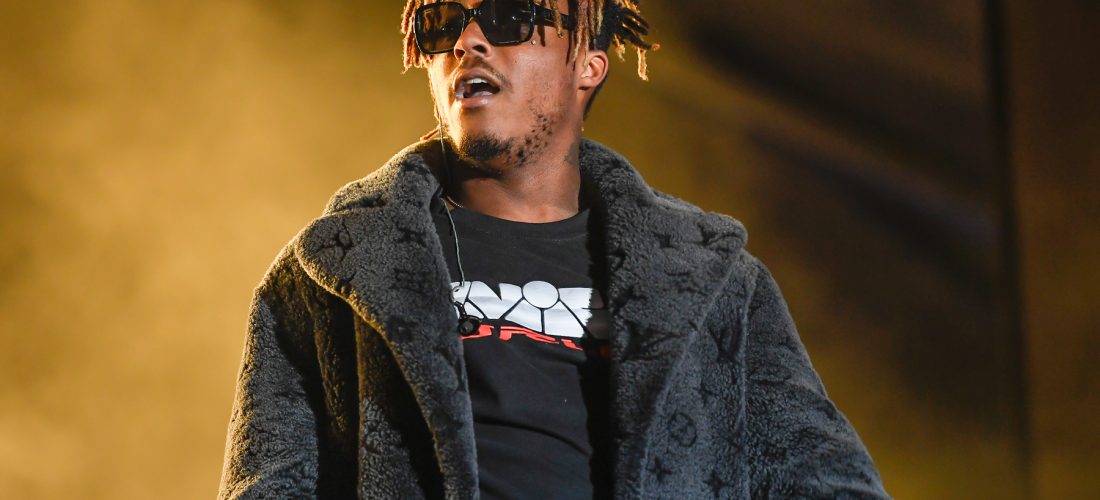Juice WRLD’s ‘Legends Never Die’ Solidifies His Legacy
During his 18 months in the national spotlight, Juice WRLD was consumed by the concept of death, which offered a neat, compact metaphor for his infinite emotional suffering. As he emerged in 2018 as one of pop’s most vital young voices, he described himself in his music as someone circling the drain, trapped in a spiral of anxiety, depression, heartbreak, and drug addiction. Juice’s hypersensitivity bordered on clairvoyance; the way he sensed the nearness of death made his own death, from an accidental oxycodone and codeine overdose last December, less than a week after his 21st birthday, both tragic and surreal. His new, posthumous album Legends Never Die feels similarly bizarre, as he now speaks on his temporal anguish from the afterlife. “I’m on Instagram Live from Heaven,” he says on the album’s last track, a skit adapted from a 2019 live stream. “I made it y’all, I’m up here, I’m boolin’.”
Juice’s gift for melody and lucid freestyles made him a walking hit factory—he cranked out his last album, Death Race to Love, in three days, and he reportedly recorded 2,000 songs before he passed away. By the same token, he operated on a narrow thematic terrain. Legends Never Die contains few revelations. Like much of his catalogue, it is characterized by direct, impactful lyrics that border on simplistic: “Said I was okay, but I’m lying, feel like that I’m dying/ Soul screaming and crying, feel my brain frying/ Try to numb the pain, all the drugs I’ve been buying.” Throughout the album, Juice describes a vicious cycle of crippling anxiety and medication, which together appear as omnipresent demons lurking in the shadows. Unlike his Chicago counterpart Chance the Rapper, he cannot simply “give Satan a swirly.” Anything short of an exorcism would be futile.
While Death Race sampled modern rap production trends, Legends Never Die is committed to the guitar as an instrument used to meld hip hop and various shades of pop-punk and emo. The album shines brightest when Juice stops navel-gazing, when he tempers his fatalism with a sense of hope and togetherness, the yang to his depressive yin. On “Righteous,” he faces the void without fear: “When it’s my time, I’ll know/ Never seen a hell so cold/ Yeah, we’ll make it out, I’ll know/ We’ll run right through the flames, let’s go.” He describes a similar leap of faith on “Wishing Well,” a soaring, Blink-182-indebted standout. Legends ends on a strong note, with “Man of the Year.” Juice finds himself in “in London town,” and he raises a toast that would make the O2 Arena feel like a pub: “Let’s raise our hands, let’s sing and dance/ I know I’m here to save you.”
With a projected 475,000 equivalent first-week sales, Legends Never Die is proof that Juice was an international superstar. His evident popularity makes the album’s attempt to manufacture a Juice WRLD hagiography on “Anxiety” and “The Man, The Myth, The Legend” feel all the more vulgar. Those songs take testimonies of Juice’s talent and impact from Rob Markman, Eminem, and Lil Dicky, which scan here like breathless product reviews left on Amazon, and etch them into his official legacy. Juice WRLD didn’t need this marketing. He already wrote his own legend.
